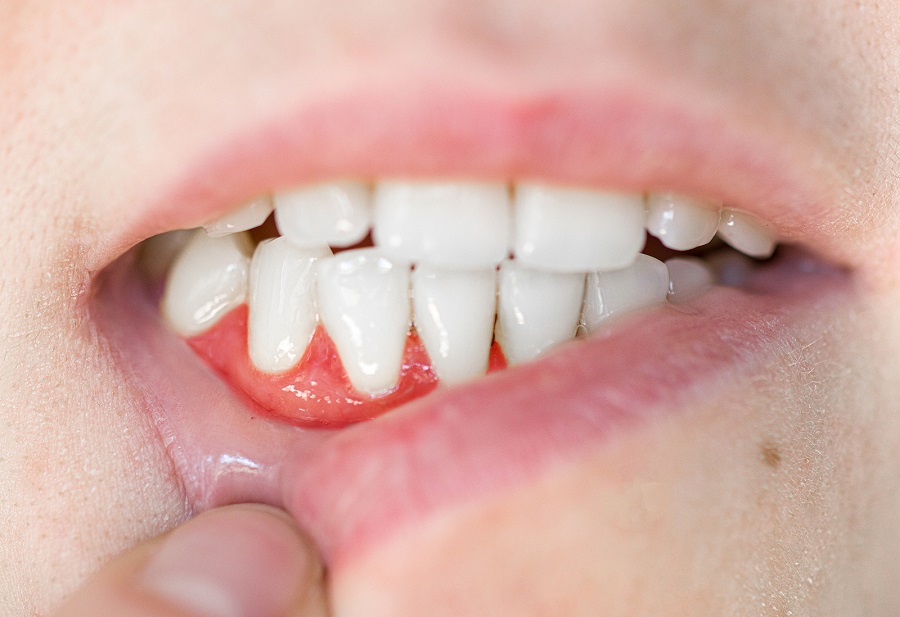To find out more about the dental services we offer at College Family Dentistry, call (225) 926-4640 or schedule a consultation online. You can also visit us at 4616 Concord Avenue, Baton Rouge, LA 70808.
The Role of Dental Crowns in Restorative Dentistry: More Than Just a Cosmetic Fix
Posted by Evan Morse Dec 12, 2024

When it comes to restoring your smile, dental crowns are often the unsung heroes of restorative dentistry. While many people associate them solely with cosmetic improvements, these versatile tools serve a much greater purpose. Whether you're dealing with decay, damage, or wear and tear from years of use, dental crowns can be a game-changer for your oral health. In Baton Rouge, LA, where maintaining a vibrant smile holds cultural significance and personal pride, understanding the role of dental crowns is essential for anyone looking to enhance not just their appearance but also their overall well-being. Let’s dive deeper into what makes dental crowns an invaluable asset in restorative dentistry and how they contribute to lasting oral health.
Defining Dental Crowns: What are They and How Do They Work?
Dental crowns are custom-made caps that fit over damaged or decayed teeth. They mimic the shape and size of your natural tooth, providing both protection and support.
These crowns can be made from various materials, including porcelain, metal, or a combination of both. The choice often depends on the location of the tooth and aesthetic preferences.
When placed, a crown restores functionality to a compromised tooth. It helps chew and speak while also preventing further damage.
The process typically involves two visits: one for preparation and another for placement. During preparation, the dentist shapes the existing tooth to ensure a snug fit for the crown.
Once cemented in place, dental crowns blend seamlessly with surrounding teeth. This not only enhances appearance but plays an essential role in maintaining overall oral health by reinforcing weakened structures.
Why are Dental Crowns a Popular Choice in Restorative Dentistry?
Dental crowns have become a go-to solution in restorative dentistry for several reasons. They offer an effective way to restore the function of damaged teeth while enhancing their appearance.
Many patients face issues like decay, fractures, or significant wear. Crowns provide a protective cover that can stabilize and support these weakened teeth. This is critical for maintaining overall oral health.
Moreover, dental crowns are versatile. They serve various purposes—from covering discolored teeth to securing dental bridges. Their adaptability makes them appealing to both dentists and patients alike.
The materials used in modern crowns also play a role in their popularity. Options range from porcelain to metal alloys, allowing customization based on individual needs and preferences.
Patients appreciate not only the functional benefits but also the aesthetic improvement that crowns bring—making smiles brighter without sacrificing durability or strength. Contact us to learn more.
Types of Dental Crowns and Their Uses
Dental crowns come in several types, each serving distinct purposes.
- Porcelain crowns blend seamlessly with natural teeth and are ideal for front teeth restorations. Their aesthetic appeal makes them a favorite among patients seeking cosmetic enhancements.
- Metal crowns, often made from gold or other alloys, offer exceptional strength. These are perfect for molars that undergo significant chewing pressure. They might not be as visually appealing, but they excel in durability.
- Resin crowns provide an affordable option with good aesthetics for temporary solutions or less visible areas of the mouth.
- Ceramic crowns stand out due to their ability to mimic natural tooth color while providing strength comparable to metal options. This versatility allows them to suit various dental needs effectively.
Each crown type is tailored for specific scenarios, ensuring optimal results based on individual patient requirements and preferences.
The Process of Getting a Dental Crown
Getting a dental crown typically involves two main visits to your dentist. During the first appointment, the affected tooth is examined and prepared. This may involve removing decay or reshaping it for proper fit.
After preparing the tooth, your dentist will take impressions. These molds help create a custom crown that matches your bite and smile perfectly. A temporary crown might be placed while you wait for the permanent one.
A week or two later, you'll return to have the final crown fitted. Your dentist will check its color and shape before securing it in place with dental cement. The process is designed not just for functionality but also to ensure comfort and aesthetics. With advancements in technology, some dentists can even craft crowns during a single visit!
Benefits of Dental Crowns Beyond Aesthetics
- Dental crowns offer more than just visual appeal. They play a crucial role in restoring functionality to damaged teeth. If you have a tooth that has been chipped or cracked, a crown can provide the necessary support for biting and chewing.
- These restorations also help protect weak teeth from further damage. When decay threatens the integrity of your natural tooth, a crown acts as an armor, preserving its structure and preventing future issues.
- Moreover, dental crowns can enhance alignment within your mouth. By filling gaps left by missing or compromised teeth, they contribute to better overall oral health.
- Patients in Baton Rouge, LA, often find that these durable solutions improve comfort during daily activities. With proper care, dental crowns can last many years while maintaining their strength and function.
Long-Term Care for Dental Crowns
Taking care of your dental crowns is crucial for their longevity.
- Regular oral hygiene practices, like brushing and flossing, help maintain both the crown and surrounding teeth.
- Avoid hard foods that can chip or damage the crown. Chewing ice or using your teeth as tools can lead to unnecessary wear and tear.
- Routine dental check-ups are essential too. Your dentist in Baton Rouge, LA, will monitor the condition of your crowns during these visits and address any issues before they become serious.
- If you notice discomfort or changes in your bite, don’t hesitate to reach out to your dentist. Prompt attention can prevent further complications.
- It's also wise to avoid staining substances if you have porcelain crowns. Limit coffee, tea, and tobacco use to keep them looking their best for years to come.
Conclusion: The Importance of Proper Oral Health and the Role of Dental Crowns in Achieving it
Maintaining proper oral health is essential for overall well-being. Dental crowns play a crucial role in restorative dentistry, offering more than just an aesthetic upgrade. They provide strength and protection to damaged teeth, ensuring functionality while enhancing your smile.
Choosing dental crowns can significantly improve your oral health by restoring the structure of compromised teeth. They prevent further decay and damage, allowing you to eat comfortably and speak confidently. With various types available, it’s easy to find a solution tailored to your needs.
Investing in dental crowns means investing in your long-term health. Regular check-ups and good hygiene practices will help ensure that both your natural teeth and any restorations remain healthy for years to come. For residents seeking options for dental crowns in Baton Rouge, LA, collaborating with a trusted dentist can lead you on the path toward achieving optimal oral health.
Location
4616 Concord Ave,
Baton Rouge, LA 70808
Office Hours
MON7:00 am - 5:00 pm
TUE7:00 am - 4:00 pm
WED7:00 am - 6:00 pm
THU7:00 am - 4:00 pm
FRI7:00 am - 2:00 pm
SAT - SUNClosed
4616 Concord Ave,
Baton Rouge, LA, 70808
Phone: (225) 926-4640Text Us: (225) 926-4640






